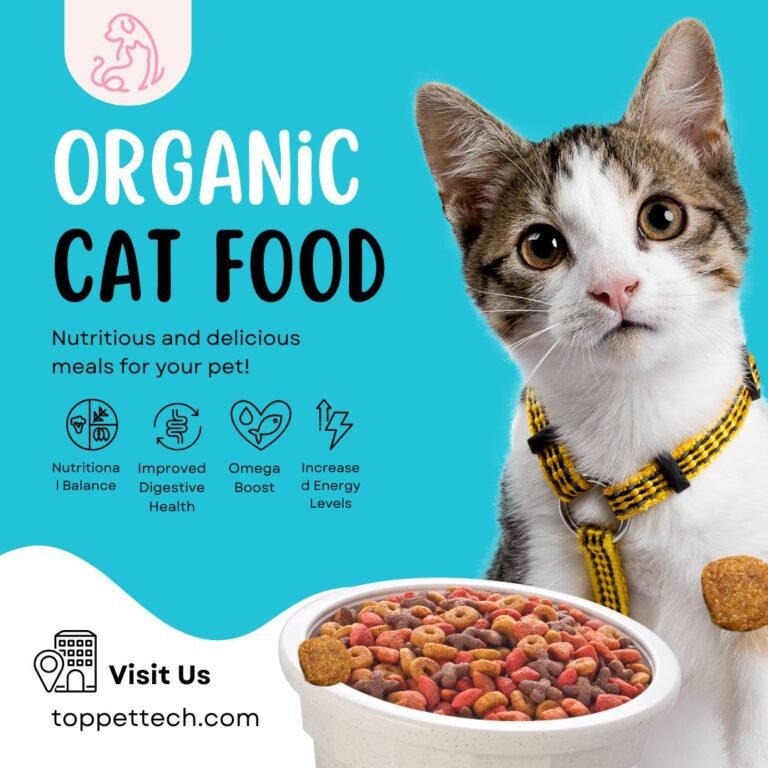As a responsible pet parent, providing your puppy with nutritious, balanced meals is one of the most important things you can do for their health and development. While commercial dog foods are widely available and convenient, more dog owners are turning to homemade puppy food as a way to ensure their pup is receiving wholesome, fresh ingredients without the unnecessary additives often found in processed options.
In this guide, we’ll explore how to prepare natural puppy food recipes the benefits it provides, and how it fits into an overall healthy lifestyle for your puppy, including physical activity and mental stimulation.
Why Choose Homemade Puppy Food?
Preparing puppy food gives you full control over what goes into your puppy’s diet. Unlike commercial foods, you know exactly what ingredients are being used, ensuring your pup receives high-quality proteins, fats, vitamins, and minerals essential for growth and energy. Let’s dive into the benefits of making your own dog food at home.
- Quality Control: You decide the freshness and quality of ingredients, reducing the risk of harmful chemicals, preservatives, or artificial flavors that can sometimes be found in store-bought options.
- Customizable: Every puppy is different, and some may have food sensitivities or allergies. Homemade meals allow you to adjust recipes to meet your pup’s specific dietary needs and preferences.
- Balanced Nutrition: Puppies need a balance of protein, carbohydrates, fats, and micronutrients for optimal development. With homemade food, you can ensure your dog gets the right amounts of each, based on their age, size, and breed. 2
Essential Nutrients for Homemade Puppy Food
To keep your puppy healthy and growing strong, it’s important to provide meals rich in essential nutrients. Here’s what you need to include when preparing healthy homemade dog food
- Protein: Puppies require protein for muscle development, energy, and overall growth. Include high-quality proteins like chicken, turkey, beef, lamb, or fish. Eggs are also an excellent, digestible source of protein.
- Carbohydrates: These provide energy for your active pup. Whole grains like brown rice, quinoa, and oats, as well as starchy vegetables like sweet potatoes, are great sources of healthy carbs.
- Fats: Healthy fats support brain development and provide energy. Include sources such as fish oil, flaxseed oil, or small amounts of olive oil in your puppy’s meals.
- Vegetables: Veggies like carrots, spinach, peas, and green beans provide vital vitamins and minerals, aiding digestion and promoting a shiny coat.
- Calcium: Puppies need calcium for strong bones and teeth. Incorporate calcium-rich foods like yogurt or cottage cheese, or sprinkle finely ground eggshells into their meals.
Managing Your Dog’s Mind Through Diet
A well-balanced homemade diet doesn’t just support physical health, but also plays a role in managing your dog’s mind. A nutrient-rich diet can enhance your puppy’s mood, behavior, and cognitive function. Puppies that receive proper nutrition are more likely to be calm, focused, and well-behaved.
Incorporating ingredients rich in omega-3 fatty acids, like fish or fish oil, can promote brain development and reduce hyperactivity, while antioxidant-rich foods such as berries and leafy greens support cognitive health and protect brain cells from damage. This holistic approach ensures your puppy grows into a well-rounded, happy dog.
The Importance of Dog Exercise
While nutrition is the foundation of your puppy’s health, regular dog exercise is equally important. Exercise helps maintain a healthy weight, strengthens muscles and bones, and provides mental stimulation. Puppies are bundles of energy, and they require daily activities to release that energy in positive ways.
Exercise for puppies doesn’t have to be intense. Short walks, playtime in the yard, or indoor games like tug-of-war can keep them engaged. Remember, a tired puppy is often a well-behaved one! Regular exercise also helps prevent common behavior problems such as chewing, barking, and digging, as it keeps them mentally and physically stimulated.
Natural Remedies for Dogs
In addition to providing balanced nutrition and exercise, it’s helpful to be aware of natural remedies for dogs. These remedies can be used to address minor health issues or maintain your puppy’s well-being in a gentle, non-invasive way.
- Coconut Oil: Applying coconut oil to your dog’s skin can help with dryness and itching, while adding a small amount to their food can promote a healthy coat and digestive system.
- Chamomile Tea: If your puppy is anxious or experiencing stomach issues, a bit of cooled chamomile tea can be soothing.
- Pumpkin: For digestive troubles like diarrhea or constipation, a spoonful of canned pumpkin (without added sugar) can regulate bowel movements.
These natural remedies should be used as a supplement to, not a replacement for, regular veterinary care. Always consult with your vet before trying any new remedy on your dog.
Signs of Illness in Your Dog
Even with the best diet and care, puppies can still fall ill. Being aware of the signs of illness in your dog is crucial so you can act quickly if something seems wrong.
Common signs to watch for include:
- Loss of Appetite: Puppies are usually eager eaters. A sudden refusal to eat can signal illness.
- Vomiting or Diarrhea: Occasional upset stomachs aren’t uncommon, but persistent vomiting or diarrhea requires a visit to the vet.
- Lethargy: If your usually energetic puppy becomes unusually tired or unwilling to play, it could indicate something more serious.
- Changes in Behavior: Watch for signs of pain, such as limping or whimpering, as these can be subtle indicators of health issues.
Always trust your instincts as a pet parent. If your puppy isn’t acting like themselves, it’s better to be cautious and consult with your vet to rule out any potential health concerns.
Conclusion
Feeding your puppy puppy food is a fantastic way to ensure they receive all the nutrients necessary for healthy growth and development. From managing their diet to support managing your dog’s mind, ensuring they get enough dog exercise, and understanding natural remedies for dogs, you’re setting your puppy up for a happy, healthy life.
A healthy diet, regular exercise, and careful observation of the signs of illness in your dog create a holistic approach to your puppy’s overall well-being. As always, consult with your vet when transitioning to homemade meals to ensure your puppy is getting everything they need for optimal health.





